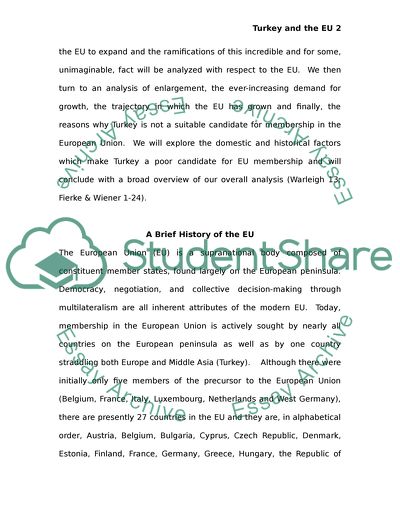Cite this document
(The Prospect of Turkish Membership in The EU and The Emergence of Coursework, n.d.)
The Prospect of Turkish Membership in The EU and The Emergence of Coursework. Retrieved from https://studentshare.org/politics/1566151-7-the-prospect-of-turkish-membership-in-the-eu-has-led-to-the-emergence-of-increasingly-stringent-conditions-for-membership-discuss
The Prospect of Turkish Membership in The EU and The Emergence of Coursework. Retrieved from https://studentshare.org/politics/1566151-7-the-prospect-of-turkish-membership-in-the-eu-has-led-to-the-emergence-of-increasingly-stringent-conditions-for-membership-discuss
(The Prospect of Turkish Membership in The EU and The Emergence of Coursework)
The Prospect of Turkish Membership in The EU and The Emergence of Coursework. https://studentshare.org/politics/1566151-7-the-prospect-of-turkish-membership-in-the-eu-has-led-to-the-emergence-of-increasingly-stringent-conditions-for-membership-discuss.
The Prospect of Turkish Membership in The EU and The Emergence of Coursework. https://studentshare.org/politics/1566151-7-the-prospect-of-turkish-membership-in-the-eu-has-led-to-the-emergence-of-increasingly-stringent-conditions-for-membership-discuss.
“The Prospect of Turkish Membership in The EU and The Emergence of Coursework”. https://studentshare.org/politics/1566151-7-the-prospect-of-turkish-membership-in-the-eu-has-led-to-the-emergence-of-increasingly-stringent-conditions-for-membership-discuss.


